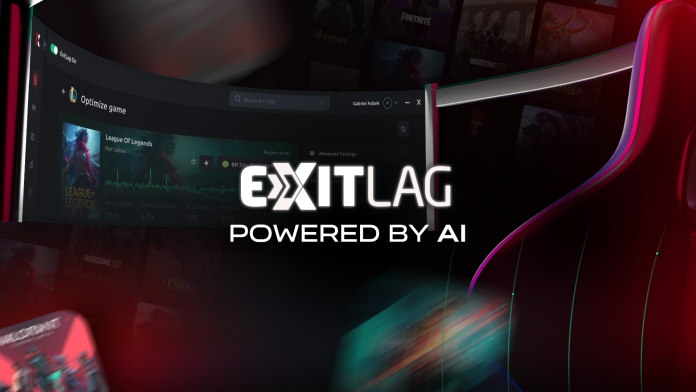In the rapidly evolving world of online gaming, milliseconds matter. Whether you’re dodging enemies in a battle royale or coordinating a high-stakes raid with teammates around the globe, a stable, low-latency connection can be the difference between victory and defeat. While game engines and graphics continue to push boundaries, one of the most impactful shifts is happening behind the scenes, powered by artificial intelligence.
In the high-stakes arena of online gaming, your internet connection isn’t just a background utility; it’s part of your gear. When milliseconds determine the outcome of a match, lag can feel like your worst enemy. And while graphics cards and custom rigs get all the hype, the smartest gamers are now turning to something far more strategic: AI-powered network optimization.
One of the leaders making serious noise in this space is ExitLag, a leading network optimization platform that has quietly become essential for players who refuse to lose because of bad ping. With real-time AI and a massive global infrastructure under the hood, ExitLag ensures your game runs as smoothly as your skills.
What Is Gaming Lag and Why Does It Happen?
Lag happens when there’s a delay between your input and what happens in the game, and it’s often not your fault. Even with fast internet, you can suffer from high ping, rubber-banding, or sudden disconnections. That’s because online games don’t just care about your speed; they care about the route your connection takes to reach the game server.
Data packets can get stuck in traffic, bounce around inefficient nodes, or be throttled by your ISP. And unlike video streaming or web browsing, games rely on two-way, real-time communication that leaves zero margin for error.
How ExitLag Fixes Latency, Intelligently
That’s where ExitLag comes in. Think of it as a GPS for your internet traffic, but with supercharged AI making real-time decisions about the fastest, most stable route for your game data.
“AI has completely changed the way we think about optimizing connections,” says Lucas Stolze, CEO of ExitLag. “ExitLag looks at thousands of possible routes at once and quickly picks the best one for your game to run smoothly. It’s all about ensuring players stay connected with less lag and fewer dropouts, no matter where they are in the world.”
ExitLag’s AI doesn’t just assess routes; it learns from them. Every time a player connects, the system absorbs data about regional traffic conditions, ISP behavior, and game-specific network demands. This feedback loop allows the platform to continuously improve performance.
“Every time someone uses ExitLag, the platform gets smarter,” Stolze explains. “Our AI is always learning from real-time behavior and network patterns, which allows us to keep improving the gaming experience and make each connection faster and more reliable over time.”
Traditional routing systems may follow static or generalized paths, but ExitLag re-routes connections dynamically—before a gamer even notices a problem. This adaptive edge means ExitLag doesn’t just fix problems, it prevents them. And in competitive play, that’s everything.
“In gaming, it’s not just about speed, it’s about staying consistent,” Stolze adds. “ExitLag helps keep gamers’ connections steady, eliminating frustrating lag spikes and frame drops. We want players to focus on what truly matters—their gameplay.”
AI Is the New Meta
As artificial intelligence weaves deeper into the gaming ecosystem, from NPC behavior to content moderation, ExitLag shows how it can also power the infrastructure that makes games playable in the first place. Its ability to personalize your connection in real time means fewer rage quits, tighter shots, and faster reactions.
Whether you’re grinding ranks, streaming to your followers, or just want your gaming sessions to feel buttery smooth, ExitLag turns your internet into a competitive advantage.
The Takeaway
If you’re serious about performance, you can’t afford to ignore what’s happening under the hood. ExitLag offers more than just reduced ping; it offers confidence. Confidence that no matter where you are or what game you’re playing, your connection is working for you, not against you.
Because in the end, winning isn’t just about how fast you move, it’s about how smart your setup is.
